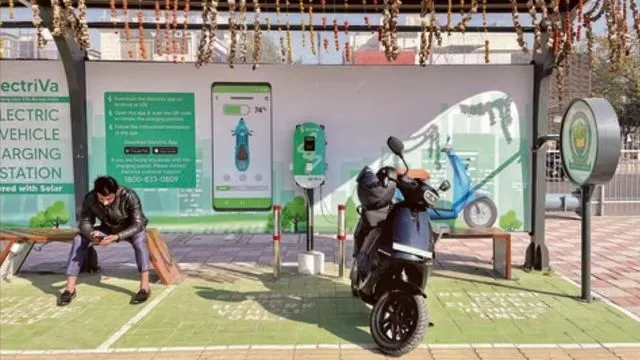- By Divanshi Sharma
- Fri, 24 May 2024 01:43 PM (IST)
- Source:JND
Hero Electric and Okinawa Autotech, two leading electric two-wheeler manufacturers in India, might soon be excluded from future government schemes in the electric vehicle (EV) sector. The central government is planning to take action against EV companies that failed to return wrongly claimed incentives under the Faster Adoption and Manufacturing of Electric Vehicles (FAME-II) scheme. Along with Hero Electric and Okinawa, four other companies, Benling India Energy and Technology, AMO Mobility, Greaves Electric Mobility, and Revolt Motors were found violating the scheme's rules, which aimed to promote electric mobility.
ALSO READ: Honda Shine 100 Hits 3 Lakh Units In A Year; What Makes This Bike So Special?
An investigation by the Ministry of Heavy Industries revealed that these companies did not comply with the FAME-II guidelines. The main issue was that they imported EV parts instead of sourcing them locally, a crucial requirement for receiving incentives under the scheme. Out of the 13 EV manufacturers investigated, these six were found to have breached the guidelines.
Among the six, AMO Mobility, Greaves Electric Mobility and Revolt Motors have already returned the wrongly claimed subsidies. However, Hero Electric, Okinawa, and Benling India have not yet refunded their share. As a result, these three companies have been de-registered from the FAME-II scheme and are likely to be excluded from other future schemes as well. Despite repeated reminders from the ministry, they have not responded regarding the repayment of the incentives.
ALSO READ: Jeep Avenger 4xe Introduced With New Hybrid Powertrain; Check Specs Here
The FAME-II scheme, which ended in April this year, has been replaced by the Electric Mobility Promotion Scheme (EMPS) 2024. This new scheme, with a budget of Rs 500 crore, aims to boost sales of electric two-wheelers and three-wheelers and further develop India's EV infrastructure. Under EMPS 2024, electric two-wheelers will be eligible for a subsidy of up to Rs 10,000, while three-wheelers can receive up to Rs 50,000. The scheme will be in effect until July this year, and EV manufacturers will receive reimbursement for the subsidies based on their vehicle sales.

